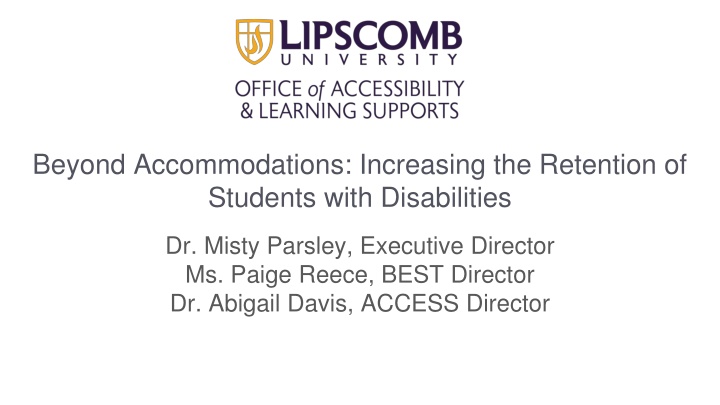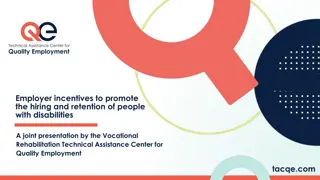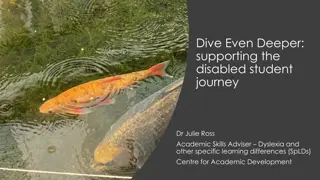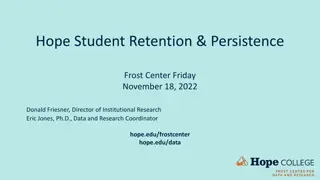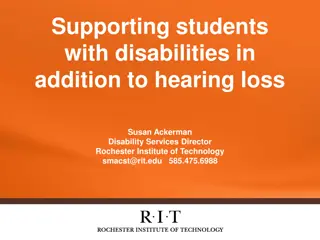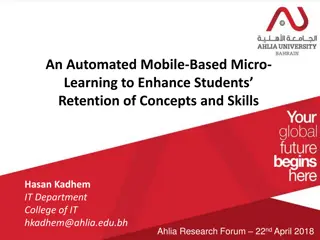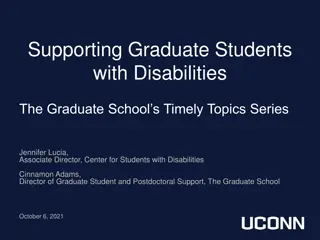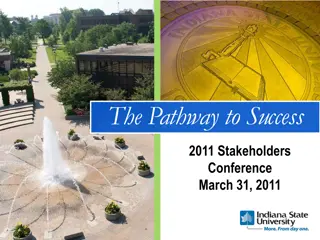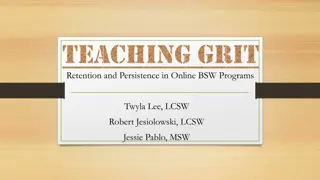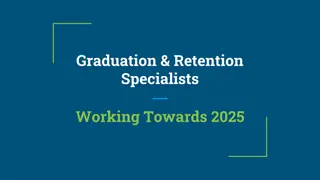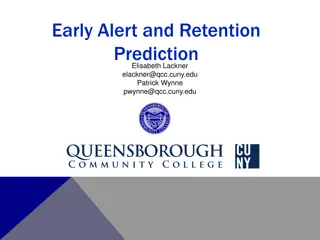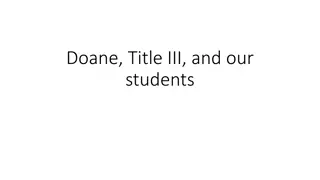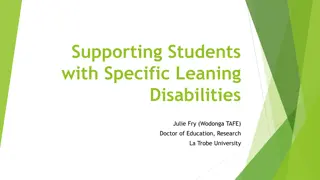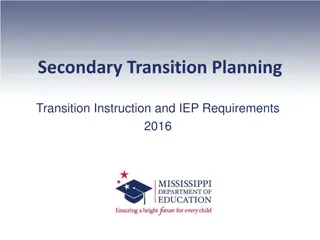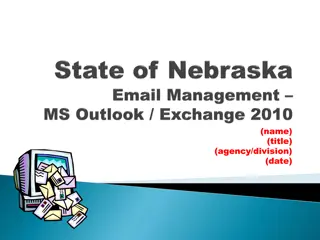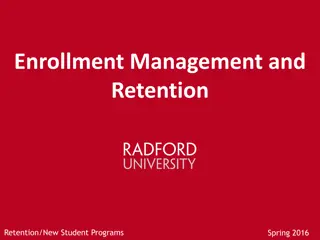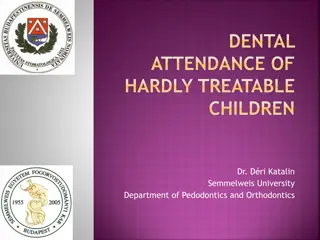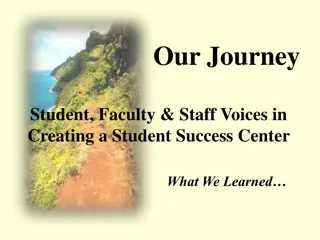Enhancing Student Success: Improving Retention for Students with Disabilities at Lipscomb University
This project focuses on redesigning Lipscomb University's office to better support students with disabilities through increased alignment, training, and tailored services. By offering comprehensive support and creating inclusive learning experiences, the aim is to enhance student success and retention rates. The program includes various initiatives such as campus-wide training on ADA compliance and providing specific services tailored to individual student needs.
Download Presentation

Please find below an Image/Link to download the presentation.
The content on the website is provided AS IS for your information and personal use only. It may not be sold, licensed, or shared on other websites without obtaining consent from the author.If you encounter any issues during the download, it is possible that the publisher has removed the file from their server.
You are allowed to download the files provided on this website for personal or commercial use, subject to the condition that they are used lawfully. All files are the property of their respective owners.
The content on the website is provided AS IS for your information and personal use only. It may not be sold, licensed, or shared on other websites without obtaining consent from the author.
E N D
Presentation Transcript
Beyond Accommodations: Increasing the Retention of Students with Disabilities Dr. Misty Parsley, Executive Director Ms. Paige Reece, BEST Director Dr. Abigail Davis, ACCESS Director
Redesign of office Create alignment across the entire Lipscomb community to increase student success for ALL learners Provide an overall stronger approach to support and retention of students with disabilities Create whole-person learning experiences that meet the needs of students with disabilities (social support, organizational support, and even residential support)
Redesign of office Provide training campus-wide on ADA, accessibility, accommodations, and supports Reduce the potential for legal issues with a supportive and knowledgeable team
Redesign of OfficeLipscomb University Office of Accessibility and Learning Supports ACCESS- Students are enrolled as traditional students and can receive accommodations BEST- Students are enrolled as traditional students and can admitted for additional supports IDEAL- Students are enrolled as non-degree students and receive a certificate
How and why we started BEST Parents reaching out for support Students dropping out of college Students applying to IDEAL Understanding of deficit areas and link to college success
Admissions Process Students must be accepted to Lipscomb first Complete a BEST application and submit paperwork IEP/504, testing, 2 references, 2 brief essay questions Complete an in-person interview Separate student and parent interviews Student writing sample If needed, call references for more information. Agree to pay separate fee ($5,000/semester)
Types of Services 1:1 meetings with director at least once a week Organization, time management, coaching Peer mentor study times (2-3 times a week) Support with advising/registration Connect to on-campus resources Support in dorms/other settings as needed
Sample To Do Lists
Sample Task List
Time blocking
Staffing Peer Mentors Provide peer-to-peer tutoring for BEST students Provides students with a typical homework working environment Models appropriate behaviors while doing homework Plan monthly group activities Karaoke, basketball games, movie nights Attend biweekly dinners Provide a familiar face for BEST students in a large group event
Faculty Support Introductory email at the beginning of the semester Three check-ins per semester Collaborative meetings Classroom observations (if requested/needed)
Working with Parents FERPA considerations Offered end of semester meetings Mid-semester troubleshooting Biweekly emails for accountability
Connection to ACCESS The ACCESS Office handles accommodations for all students with disabilities. All BEST students are ACCESS students. Accommodations are determined in collaboration with BEST staff.
Connection to ACCESS ACCESS staff work with BEST students related to: Use of the Testing Center Obtaining audio/e-books Managing/Renewing accommodations Strong working relationship between ACCESS Director and BEST Director.
Summer Bridge Program 5 days, 4 nights (residential) Able to see any concerns with living in dorm and also potential roommate pairings Overview of college and skills needed Overview of college resources Introduction to accommodations (Glean, Bison Accommodate, ACCESS office)
Summer Bridge continued Social opportunities Fun, college activities Current BEST students describing their first completed year of college Older counselors that are capable of speaking towards their personal college experiences
Challenges Test optional for admissions has affected makeup of student body Balancing academic needs with possible supports Faculty buy-in Student motivation Helping parents understand differences in college vs high school
Tips Hire a separate staff member Start small! Our goal was 8 the first year. Have a collaborative mindset Look at retention data to justify the need Look at ways to link to the university s mission/strategic plan Get in front of faculty often
Resources/References Barrows, M., Newton, J., & Collins, E. (2016). Beyond Transition: An interactive workbook for college-bound students with LD and ADHD.AHEAD. Kennedy, M. (2017). Coaching college students with executive function problems. Guilford Press. Timmins, S. (2017). Developing resilience in young people with autism. Jessica Kingsley Publishers.
Presenter Info Dr. Misty Parsley Misty.parsley@lipscomb.ed Ms. Paige Reece Paige.reece@lipscomb.edu Dr. Abigail Davis Abigail.davis@lipscomb.edu
